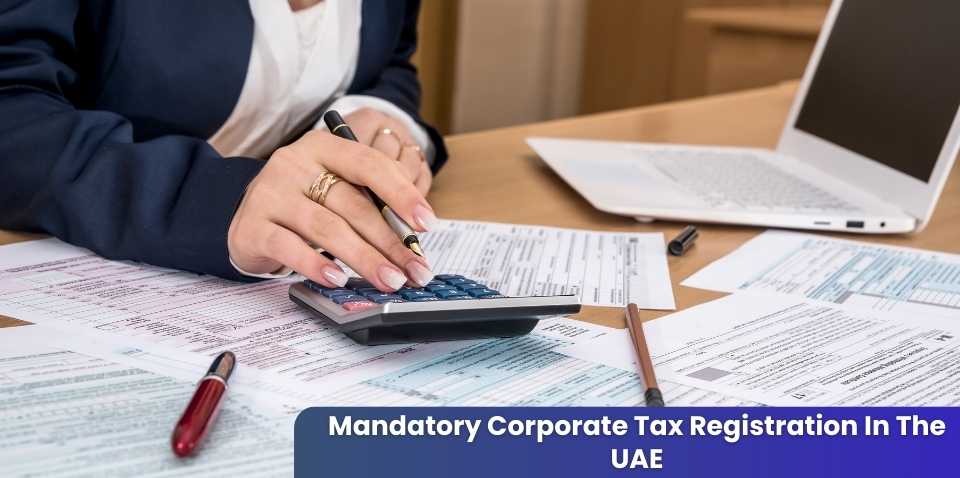Mandatory Corporate Tax Registration in the UAE - 2024 Guide

Fanar Advisor helps businesses meet their legal registration and compliance obligations for Corporate Tax (CT). We provide assistance throughout this complex levy’s implementation, with fanar providing guidance throughout its application.
The FTA Decision details registration deadlines with an AED 10,000 penalty imposed if these deadlines are missed. Furthermore, this document outlines guidelines for individuals looking for exemption from CT tax such as qualifying public benefit entities and private and public pension funds.
What is Corporate Tax?
The UAE’s new Corporate Tax (CT) regime seeks to maintain the country’s position as a premier international business hub while adhering to international transparency standards and eliminating harmful tax practices. All individuals and businesses operating within UAE territory must register with Corporate tax for CT purposes unless exempt.
Under UAE CT Law, any person engaged in tax activities within the UAE who earns annual taxable income exceeding AED 375,000 on either an annual residence or source basis must register with Corporate Tax for tax registration purposes. This also includes foreign legal entities operating within UAE borders earning state-sourced profits.
A “taxable person” is defined as any individual or legal entity who derives profits or gains from engaging in activities outlined by UAE Tax Law and Executive Regulations; this can include companies, partnerships, trusts or any other legal entities such as trusts. Furthermore, this guide highlights that CIT tax groups differ from VAT qualifying groups in that each serves a distinct function.
Who is required to register?
The UAE corporate tax law has set forth timelines for individuals to submit registration applications for Corporate Tax. Individuals required to register are –
- Resident Juridical Persons
- Foreign Juridical Persons who operate through a Permanent Establishment in the UAE or have taxable nexuses with it.
- Natural persons engaged in Business Activity as well as Non-residents earning State Sourced Income with nexus in UAE.
Applications may be submitted through EmaraTax portal, an online system which makes the submission of tax applications quick and straightforward for businesses.
The portal gives users a clear picture of all their tax-related information and activities, while businesses can use the platform to file returns, pay taxes and claim refunds.
For assistance with registration or further clarification, businesses can consult Fanar Advisor in the UAE to mitigate risks, ensure compliance, and avoid penalties.
How to register?
As an owner of a business in the UAE, it’s vital that you fully comprehend corporate tax law and its implications. Furthermore, be mindful of registration and compliance obligations so as to avoid penalties or risks associated with penalties and compliance violations.
First step to using EmaraTax platform of FTA: Create an Account
Once you’ve established an account, the next step in tax registration will be filling out an application. This form requires information on your legal structure and license as well as all owners and partners in your business; copies of their passports will also need to be provided.
Once your registration process is complete, you’ll receive a Tax Registration Number (TRN). This number should be used when filing and paying any applicable taxes, appearing on company letterhead and websites, and for filing reports related to conducting business in UAE. Keep this number handy as you conduct your activities there.
For help with registration or further clarification, businesses can consult Fanar Advisor- A Business Consultant in the UAE
What are the penalties for non-compliance?
The UAE’s corporate tax regime seeks to increase compliance and facilitate non-oil revenue collection, so timely registration as per established timelines is of utmost importance for entities operating both extractive and non-extractive sectors.
However, any taxable person failing to submit their application within the stipulated deadlines could incur penalties and fines for late filing. As a result, this new guide offers a clear framework for meeting regulatory standards while ensuring on-time application submission.
It also emphasizes the significance of accurate record keeping, timely submission of tax returns and supporting documentation, and filing transfer pricing documentation with the FTA accurately. A penalty of 10,000 AED will be assessed for violations to any of these guidelines, intended to incentivize compliance and avoid unneeded financial repercussions. Furthermore, its guidelines also clarify who qualifies as “taxable persons” and exempted persons – vital in helping businesses understand their categories more easily
Fanar Advisor is committed to providing the necessary support and guidance to help you navigate these regulations, ensuring your business remains compliant and avoids costly penalties.






